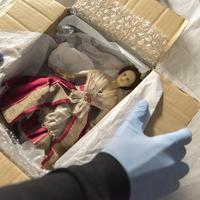2022-23 | Uncovering Histories of Childhood within the National Trust

©National Trust Images/Paul Harris.
'Uncovering Histories of Childhood within the National Trust'
TORCH Knowledge Exchange Innovation Fund Awardee
Dr Siân Pooley | Faculty of History | University of Oxford
Partner Organisation
The National Trust
‘Uncovering histories of childhood within the National Trust’ asks two questions. First, how can histories of childhood offer fresh perspectives on properties and spaces now in the care of heritage organisations, including the National Trust? Second, how can heritage collections, particularly those held by the National Trust, provide new insights into children's lives in the past?
Oxford University’s History Faculty has hosted the UK’s only centre for the History of Childhood since 2003, but has little experience of collaborating with heritage organisations. The National Trust has vast collections relating to childhood and increasingly seeks to engage young people. Yet, the charity has limited expertise in the history of childhood, little knowledge of its child-related collections, and seldom places real children’s lives at the heart of properties’ narratives.
Supported by the University’s National Trust Partnership and working closely with National Trust curators, the project will build the proposed collaboration in three stages.
In the first stage a colloquium on ‘Children and Heritage’, organised jointly by Oxford’s Centre for the History of Childhood and the National Trust Partnership, will foster knowledge-exchange between academics and museum and heritage professionals. The second stage will share insights from the colloquium with wider audiences. This will be achieved through: making recordings of colloquium talks available online; a toolkit on the history of childhood and heritage; and a journal article on children's voices within heritage spaces. Third, the experience, understanding, and contacts gained from the first two stages will enable future research on the history of childhood in modern Britain using heritage collections, while also uncovering new child-centred stories within heritage properties and landscapes.
@HistChildOxford


